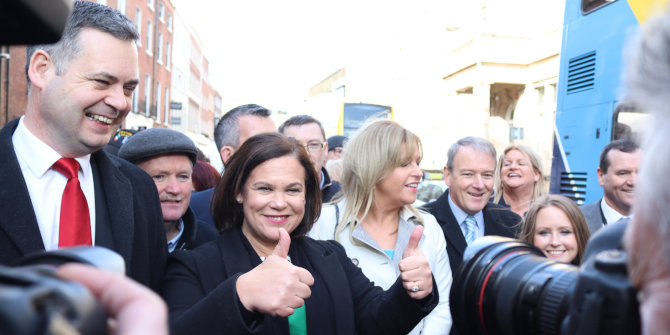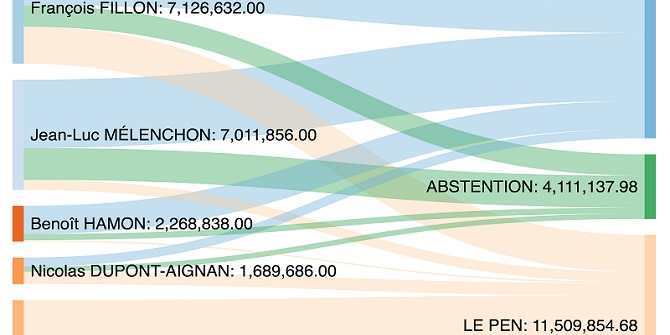Italy’s Five Star Movement held a congress on 14-15 November to determine the party’s future. The congress came after disappointing regional election results and a sustained decline in opinion polls since the last Italian general election in 2018. Maria Giovanna Sessa and Giacomo Riccio write that the party must decide whether to embrace its position as a mainstream political actor or to reclaim its anti-system credentials.
On 20-21 September, Italians voted in a constitutional referendum to reduce the country’s parliament by roughly a third of its size. The amendments were approved by just under 70 per cent of voters, who were persuaded by the prospect of cost-savings and added efficiency.
Although the referendum counted on the support of the main governing and opposition parties, the Five Star Movement (Movimento 5 Stelle – M5S) claimed the result as a victory. Yet, such optimism could not be extended to the elections that seven Italian regions held at the same time. The two votes constitute an interesting benchmark to assess the performance of the Five Star Movement, halfway through its second experience of government.
From rising star to shooting star
The “valence populism” of the M5S allows it to focus on consensus-gathering non-positional issues, a category into which the constitutional referendum certainly falls, given it was politicised as the first of many reforms aimed at bureaucratic pruning and conveyed through a direct democracy mechanism. Although the simplification of political issues to a yes-or-no response from the public has proven successful for the party, the results of the more deliberative regional vote (where they failed to win any of the seven contests) unveiled its weaknesses.
Since winning the most votes of any party in the 2018 general election, the anti-system M5S has moved from a position of refusing to compromise with other parties (an impossible deed within Italy’s proportional electoral system) to accepting an issue-by-issue collaboration with third players. This led to a first cabinet in coalition with the League, which was followed by a second coalition with its ‘foe turned friend’, the Democratic Party.
The party is currently torn between two competing strategies. On the one hand, it has frequently acted like a movement by embarking on single-issue crusades. Yet, as a member of government, it now has an obligation to take positions on a complete set of policy-issues, leading to confrontation – though the party has always rejected factionalism. Of late, the historical motto “uno vale uno” (one is worth one) has begun to sound more like the systematic silencing of a healthy internal debate, rather than an egalitarian chant.
Weak local foundations
Including elections held in January, the M5S has now experienced an electoral debacle across nine Italian regions this year, underlining its weak territorial foundations. This was evident in the latest ballot, where incumbent actors with a strong local presence were rewarded: Vincenzo De Luca in Campania and Michele Emiliano in Apulia for the Democratic Party, Giovanni Toti in Liguria and Luca Zaia in Veneto for the centre-right.
The costs of this territorial absence had already emerged following the 2018 national elections, when the M5S, having succeeded in breaking the traditional tendency for Italian politics to shift between the left and right, subsequently failed to win any local elections. The party’s poor performance has been blamed on its ‘virtual’ nature, which ensures that its relevance at the national level disappears from the radar when it comes to local politics. Virginia Raggi, the current Mayor of Rome, and Chiara Appendino, the Mayor of Turin, are the exceptions that prove the rule.
Overall, the regional elections marked a return to the longstanding bipolarism between the centre-right – chiefly the League and the Brothers of Italy, which continued its recent rise in popularity – and the Democratic Party on the centre-left. While the dearth of a consolidated identity has allowed the M5S to govern with both of these poles, it has also shattered the illusion that the party might become the key pivot in coalition-making. Rather, the party currently resembles a pawn in a political game it is helping others to win.
Where next?
The M5S urgently needs a change of course or it risks extinction. A first possible solution to stay afloat would be to return to the opposition by abandoning the burdensome role of decision-maker and returning to its original role as a ‘decision-breaker’. Nonetheless, the M5S elected representatives seem to have comfortably embraced the perks of office and convincing them to give up this lottery ticket might be easier said than done, particularly in the context of a resized parliament.
Another option would be to accept the nature of politics as the art of the possible, a perspective recently envisaged by the party’s former leader, Luigi di Maio. This proof of political maturity would come at the inevitable cost of leaving some followers behind – the M5S has already lost 24 MPs to other parties since the beginning of the legislature. Either way, the appointment of a new leader has been viewed as crucial for overcoming animosity towards the current leadership, which is accused of lacking the pulse to affirm the party’s agenda over that of the Democratic Party. After various political representatives repeatedly proposed a congress to discuss the party’s future direction, a convention, termed the ‘States-General’, was finally arranged.
This unprecedented virtual convention has had three distinct phases. A national assembly on 14-15 November concluded provincial and regional meetings that were held at the end of October. The ‘founding fathers’ Beppe Grillo and Davide Casaleggio refused to join the 30 speakers (top activists and politicians) that were selected to define the type of leadership, organisation and internal rules that the M5S should embrace. The outcome of the deliberation has taken the form of a set of united yet non-definitive guidelines that party supporters will approve in the upcoming days via the participatory democracy platform Rousseau, whose funds have been recently cut off (another symptom of the party’s internal malaise).
For now, the confrontation seems to be between the governing line promoted by Luigi Di Maio, and the dissident line that Alessandro Di Battista embodies. The latter fled the political scene in 2018, but now seems ready to make a comeback and perhaps act as the saviour the party so desperately needs. Unsurprisingly, the current leadership was not too keen on the whole convention idea and gave a decidedly cold welcome to Di Battista on his return. Di Battista potentially incarnates that wind of change capable of challenging both the current leadership, who are said to have betrayed the original mandate of the people by joining the ‘elite’, and the standing agreement with the Democratic Party.
In the end, the M5S will have to decide which path to walk through: whether to acknowledge its mainstream conversion or to reclaim its anti-system credentials, before another player shows up to fill those shoes.
Note: This article gives the views of the authors, not the position of EUROPP – European Politics and Policy or the London School of Economics. Featured image credit: Movimento 5 Stelle




